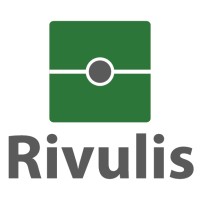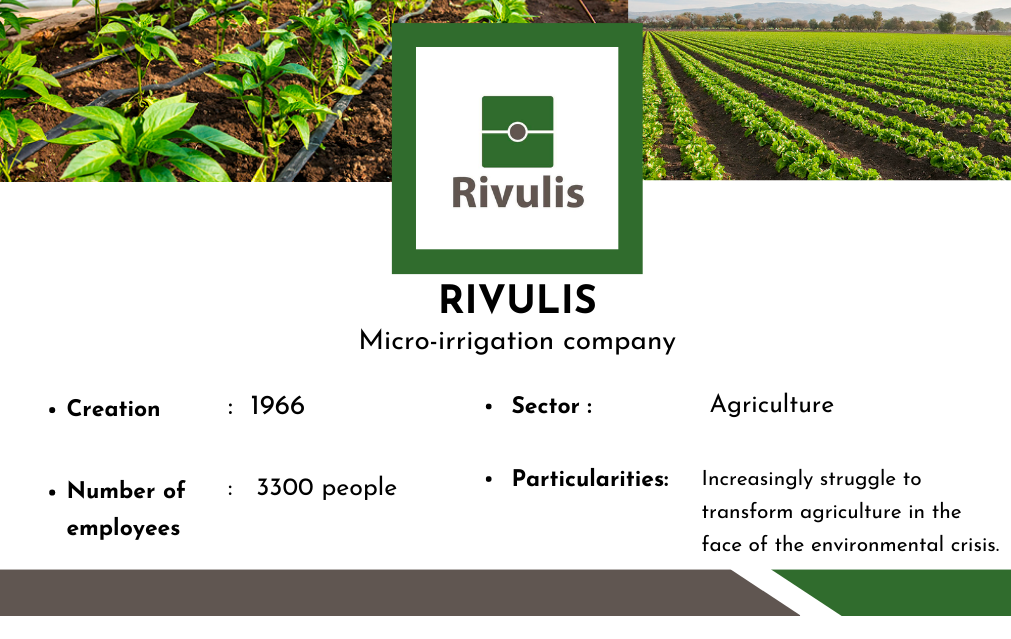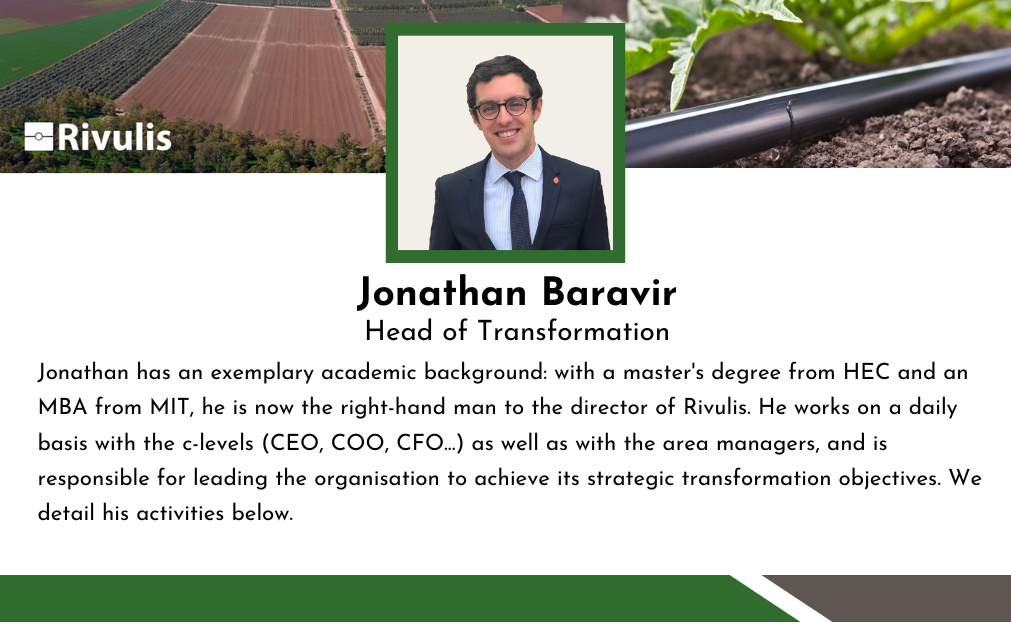
In this article, we are going to introduce you to Rivulis, a company in the micro-irrigation sector that works for the ecological transition of agriculture through its activities…. a good example of tomorrow’s company in our opinion, which reacts to the climate crisis.


Since the 1950s, Israel has been a pioneer in drip irrigation. This is an irrigation method that delivers water directly to the roots of plants using perforated pipes or drippers. This irrigation system saves up to 50% of water compared to conventional watering methods, reduces soil erosion, decreases the risk of plant diseases and promotes healthier and better quality growth. It is an effective, economical and environmentally friendly solution for gardeners and farmers.
To understand how Rivulis sees itself as a pioneer and a future player in the fight against global warming, it is important to understand its activities today (drip irrigation) as well as the activities that are being implemented (support for certification in the carbon credit market).
Rivulis is a company that responds perfectly to the current climate crisis, as the fight against global warming is at the heart of its activities.
Jon explains that the company’s original focus was on industrial know-how, with the main goal being to produce the best possible irrigation technology.
But, recently, and especially thanks to its acquisition by the Singapore investment fund Temasek, the company has become aware of its enormous potential in the fight against global warming. Indeed, the drip irrigation system has several benefits for people and the environment:
But above all, it is a turning point because Rivulis is about to develop a new activity: helping farmers to better sequester CO2 in their soils, so that they can be certified on the carbon credit market. In order to better understand this turning point of the company, we let you discover Jonathan’s work described below. His position is key and central in the company and by talking to us about his work, we were able to identify the strengths of Rivulis.
Understanding Jonathan’s business has given us a better understanding of the current issues and opportunities at Rivulis and we thought it would be interesting to share it with you.
Jonathan’s job title is “Head of Transformation”, but he could be likened to “Chief of Staff”.
He has 3 main activities at the moment:
It is about M&A (merger and acquisition). Indeed, Rivulis is number 2 in the world of micro-irrigation, but there are many number 2s, which are “small” compared to the number 1 leader. The objective of Rivulis is therefore to acquire a sufficient size to compete with the number 1 through M&A.
Jon is currently preparing a major merger in the industry between Rivulis and Jain’s international irrigation business. If the merger is approved by the competition authorities, the challenges will be multiple, on the operational level with 9 new factories to be integrated into the 17 current Rivulis factories, on the commercial level with dozens of new products and above all on the human level with the integration of more than 1,100 new employees, of more than 20 different nationalities.
Temasek is a Singaporean investment fund that focuses on sustainability. The latter has recently acquired Rivulis and wants to make it a market leader. Thus, having an ESG label is a major asset, especially for a potential future stock market listing. They have therefore determined a dozen strategic axes, many of which are eco-friendly. For example, they have set up the annual drafting of a CSR report, or industrial investments to promote the recycling of used irrigation systems. These initiatives also include more traditional topics such as improving the profitability of certain regions or reducing the company’s working capital requirements.
Each axis has a project manager, and Jonathan oversees all of them and mediates with the board.
This is where the interview becomes very interesting in terms of understanding Rivulis’ green ambitions.
Indeed, it is important to know that today there is a voluntary carbon credit market worldwide: this means that if a company achieves a quantifiable CO2 sequestration, then it can obtain a monetary reward, a carbon credit. On the other hand, if a company pollutes, it can voluntarily commit to financing projects that capture CO2 from the atmosphere or reduce greenhouse gas emissions, through the purchase of these same carbon credits.
Until now, this carbon credit market has mainly concerned forests, but is now starting to concern agriculture.
Concretely, what role will Rivulis play in this carbon credit market?
In fact, they are going to develop a consulting and services activity, intended for farmers, with the aim of helping them to be certified as “CO2 sequestrators”. The objective is to help them improve their agricultural processes so that their soil absorbs as much CO2 as possible. One of the tools for this is the micro-irrigation system mentioned above.
For Rivulis, the goal is to convince its customers to change their methods to allow for better absorption of CO2 in the soil. For example, Jon explains that plowing the land tends to release the carbon sequestered in the soil. In some cases, there are alternative methods, sometimes not well known, that Rivulis will try to convince its customers to adopt, always with the aim of preserving the environment.
We hope you enjoyed this article! Thanks and see you soon!
lodysseemanageriale
Élodie & Dimitri
| Cookie | Duration | Description |
|---|---|---|
| cookielawinfo-checkbox-analytics | 11 months | This cookie is set by GDPR Cookie Consent plugin. The cookie is used to store the user consent for the cookies in the category "Analytics". |
| cookielawinfo-checkbox-functional | 11 months | The cookie is set by GDPR cookie consent to record the user consent for the cookies in the category "Functional". |
| cookielawinfo-checkbox-necessary | 11 months | This cookie is set by GDPR Cookie Consent plugin. The cookies is used to store the user consent for the cookies in the category "Necessary". |
| cookielawinfo-checkbox-others | 11 months | This cookie is set by GDPR Cookie Consent plugin. The cookie is used to store the user consent for the cookies in the category "Other. |
| cookielawinfo-checkbox-performance | 11 months | This cookie is set by GDPR Cookie Consent plugin. The cookie is used to store the user consent for the cookies in the category "Performance". |
| viewed_cookie_policy | 11 months | The cookie is set by the GDPR Cookie Consent plugin and is used to store whether or not user has consented to the use of cookies. It does not store any personal data. |